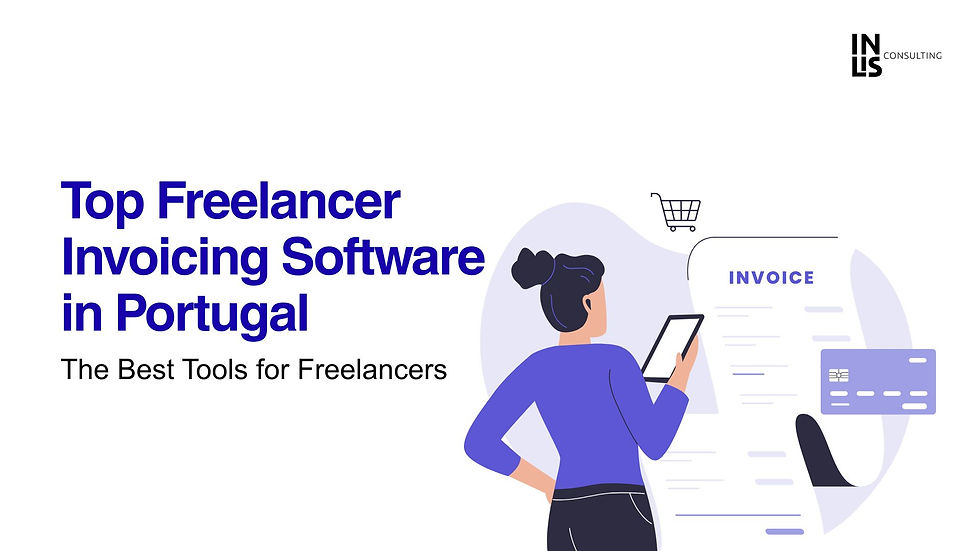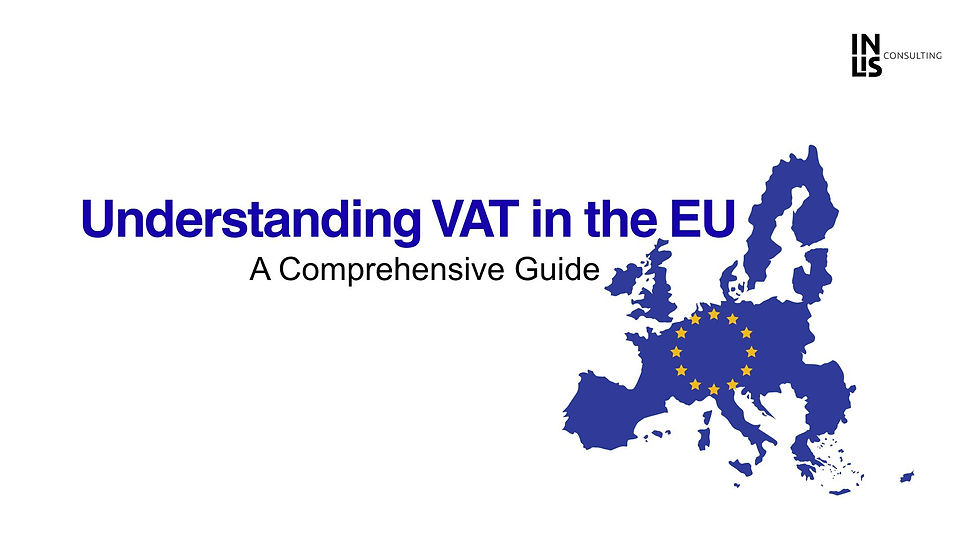E-Fatura and Expense Declarations Can Be Difficult in Portugal
- INLIS Consulting
- Oct 29, 2025
- 3 min read
Managing taxes in Portugal can be a challenge, especially for freelancers, independent workers, and business owners. Two of the most common sources of confusion are E-Fatura and expense declarations.

What is E-Fatura?
E-Fatura is the Portuguese government’s digital invoicing system. It allows the Tax Authority (Autoridade Tributária – AT) to track and verify income, invoices, and deductible expenses for all taxpayers.
Every individual or business issuing invoices or making expenses must report them in E-Fatura. For self-employed professionals, this system directly affects how taxes are calculated and how deductions are applied.
Key Features of E-Fatura:
Automatically tracks invoices issued to clients
Tracks deductible expenses like health, education, and professional services
Integrates with IRS annual tax filings
Offers visibility into potential deductions
Why Expense Declarations Can Be Tricky in Portugal
Expense declarations in Portugal require careful record-keeping. Every deductible expense must meet strict criteria to qualify for tax benefits.
Common Challenges Include:
Incorrect Categorization of Expenses
Only certain expenses are deductible. Misclassifying personal costs as professional can trigger audits or fines.
Invoices Without Valid Tax Information
Invoices must include the correct NIF (tax number) of both the issuer and the receiver. Missing or incorrect NIFs can invalidate the deduction.
Limited Knowledge of Eligible Deductions
Health, education, transportation, and professional services can be deductible, but knowing the limits and rules is essential.
E-Fatura Submission Errors
Failing to log expenses in the correct category in E-Fatura can result in discrepancies between reported income and deductions.
Late or Missing Invoices
Expenses must be reported before the IRS annual declaration. Late submissions are often not accepted.
Common Mistakes in E-Fatura and Expense Declarations
Mistake | Consequence | Solution |
Not reporting all invoices | Tax discrepancy, fines | Check all invoices and include them in E-Fatura |
Misclassifying deductible expenses | Deduction denied | Use correct categories: health, education, professional services |
Using the wrong NIF | Expense invalidated | Always verify the client/supplier NIF |
Submitting invoices late | Deduction denied | Update E-Fatura regularly |
Ignoring VAT rules | Tax errors | Understand VAT exemptions, standard, and reduced rates |
Why These Challenges Are Harder for Freelancers and Expats
Different Tax System
Foreign residents or new freelancers may find Portuguese tax rules complex, especially when understanding deductions and E-Fatura categories.
Language Barrier
E-Fatura and official IRS portals are in Portuguese, which can make navigating the system difficult for non-native speakers.
Complex VAT Rules
Understanding when to charge VAT or claim VAT deductions adds another layer of difficulty for independent workers.
Multiple Income Streams
Freelancers often work for several clients, sometimes abroad. Tracking all invoices and ensuring correct deductions requires careful accounting.
Tips to Simplify E-Fatura and Expense Declarations
Keep All Invoices Organized
Both physical and digital invoices should be stored and categorized according to E-Fatura requirements.
Verify NIF Accuracy
Always double-check the tax numbers of clients and service providers.
Update E-Fatura Regularly
Don’t wait until tax season. Logging invoices monthly reduces errors and last-minute stress.
Learn Deduction Rules
Know which expenses qualify and their limits. Professional guidance can ensure maximum benefit.
Use Accounting Software or Professional Help
Tools like Moloni, InvoiceXpress, or even consulting firms like INLIS Consulting can streamline submission, track invoices, and ensure compliance.
How INLIS Consulting Can Help
At INLIS Consulting, we specialize in assisting freelancers, digital nomads, and small businesses with E-Fatura and expense declarations. Our services include:
Setting up E-Fatura accounts
Categorizing and recording all expenses correctly
Monthly or quarterly bookkeeping
IRS preparation and filing
Ensuring VAT and NIF compliance
Contact us today to simplify your tax process and avoid unnecessary stress: geral@inlis.pt | WhatsApp: +351 968 464 906




Comments